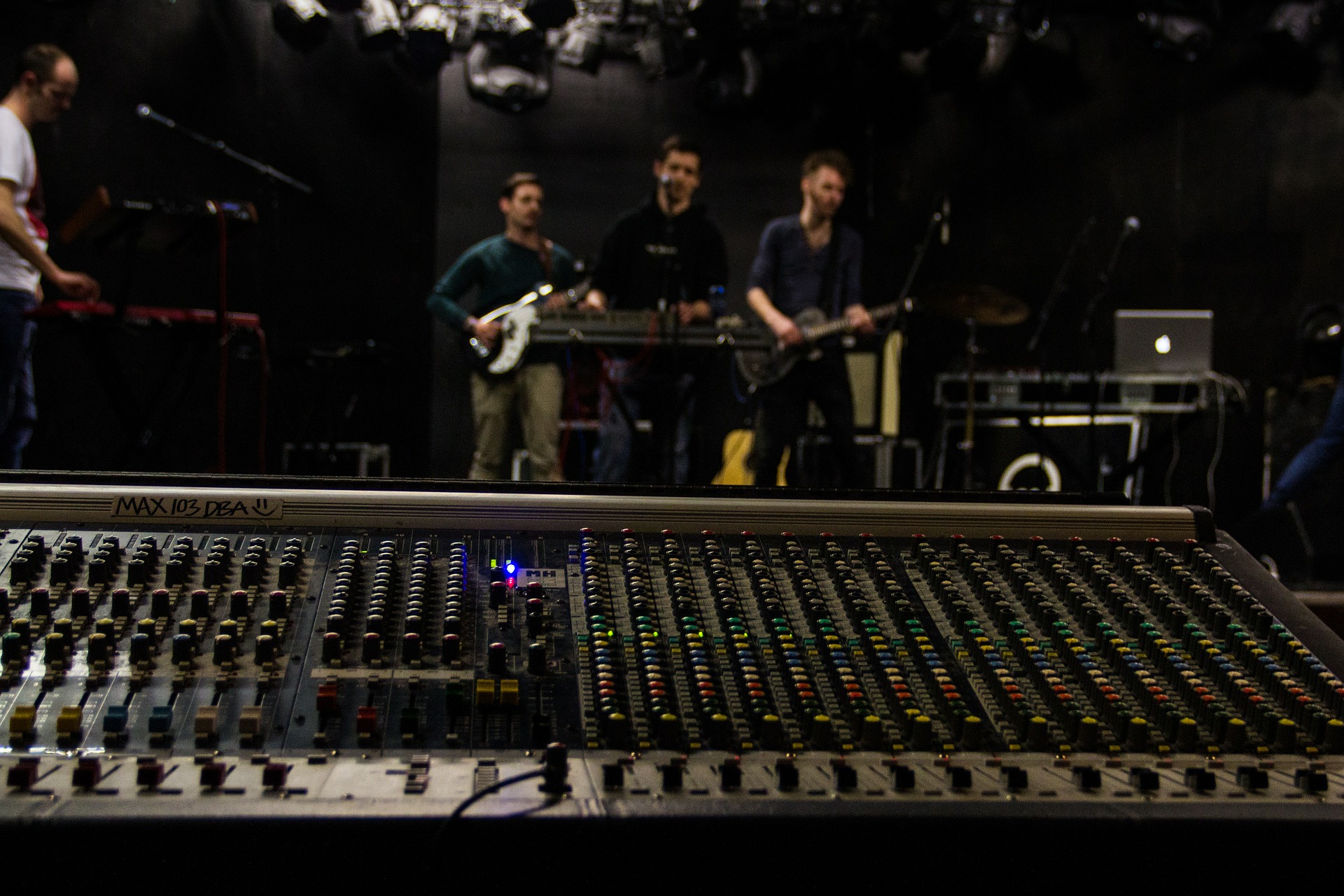
I’ve worked as a sound engineer in the past and trust me – the sound guy can feel just as intimidated as the musicians performing on stage. If the front-of-house mix is bad, people are going to be pointing to the guy behind the mixing desk. Therefore the sound engineer wants the show to sound great just as much as you do. Of course this isn’t always the case, but the majority of the time venues will employ an engineer with at least some qualifications and passion for what they do.
You may already know that great sound can inspire you to perform and play at your best possible level. The first tip (and also the most important) that I want to give you is to always treat the sound engineer with respect. Since he’s in control of how you’re going to sound, you don’t want to do something to annoy him and make him lose interest in how you’re going to come across to your audience. Befriend the sound engineer!
Secondly, you want to avoid strumming away at your guitar prior to the gig and during sound check. The sound engineer will tell you when he wants to check your signal, and only then should you play your instrument. Once he is done, stop! Constantly making a noise with your instrument is not only something that will annoy the engineer and other band members, but it will come across as extremely unprofessional to any bystanders. High calibre musicians usually understand this aspect from the get-go and are very aware of when it’s the right time to try and show off what you can do.
Thirdly, the sound engineer is basically only there to amplify what you already sound like. Your amplifier (referred to as the source) should be dialed in for optimal tone prior to the gig. You’ll need slight adjustments to fit your amp to a new room, but it helps to know how the knobs are going to affect your tone. It’s a good idea to try and EQ yourself in context of a full band. What this means is you don’t want to occupy low frequencies that belong to the bass guitar, or high frequencies that belong to the cymbals. Here’s a great article on how to set your gear accordingly for the gig: How to Get Killer Live Guitar Tone – Part 3.
I also want to address the loudness issue as I feel some people miss the point here. A tube amp needs to be set at a certain volume to sound at its best. I don’t play at a ridiculous volume, but I do play loud. I’ve never been asked by an engineer that I consider “great” to turn my amp down. A skilled sound engineer will be able to mix you in accordingly, regardless if your amp is loud or soft. Maybe this may mean taking most of signal out of the front-of-house system, but still spreading it in a way that it sounds like a well mixed band. Of course as I have mentioned previously already, you don’t want to argue with the engineer if he tells you to turn down. What I normally do in a situation like this is turn down the volume on my guitar to a level that may seem more suitable. Then when the full band starts playing I’ll turn up again, usually without them even noticing.
You also want to avoid going to the sound engineer for solutions to your problems. Show up with gear that works so that you’re not dependent on anyone else. You’re going to want to take some extra cables, batteries etc to ensure you’re fully prepared. Additionally, if you’re faced with awful sound don’t point fingers at the engineer. See it as a learning experience to grow as a performing musician.
To conclude, you should always be realistic about your monitor mix. It’s usually a good idea to put ONLY vocals and keyboards through your monitor. A tube amp is loud enough to be heard by all the members in the band without the need for added monitoring (provided you’re not using in ears). If you ask for everything in your monitors, you are most likely to going to annoy the engineer (at least if he’s good).
